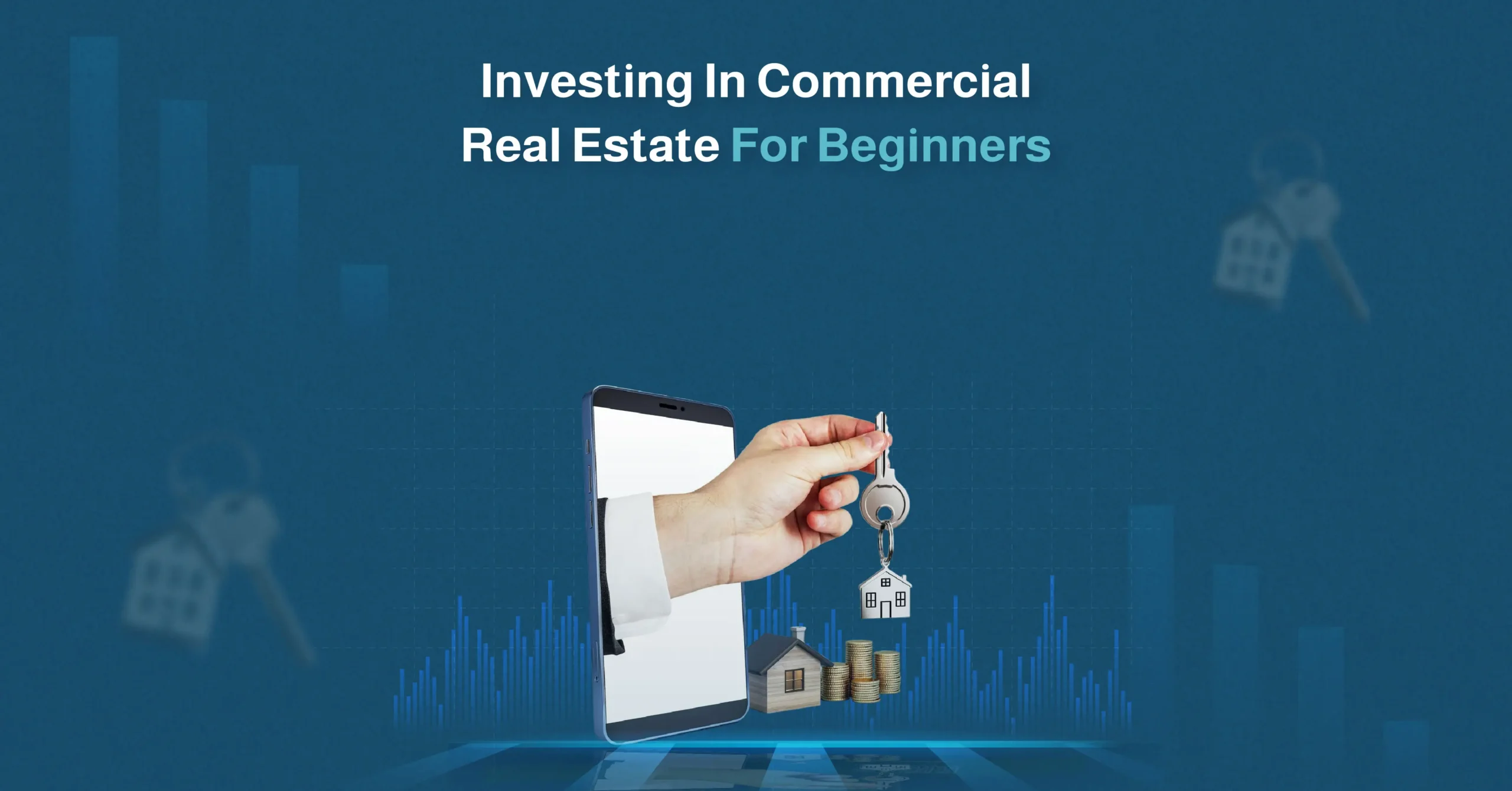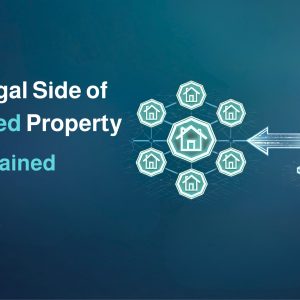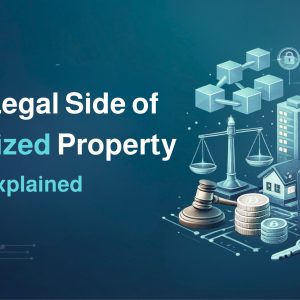If you’ve ever walked past an office building, shopping centre, or warehouse and thought, “Who owns that—and how do they make money from it?” then you’re already thinking like a commercial real estate investor.
Unlike residential property, which most people are familiar with, commercial real estate (CRE) covers income-generating properties like retail spaces, office buildings, logistics parks, hotels, and multi-unit apartment blocks. For those new to it, investing in commercial real estate for beginners can seem intimidating. But with the right approach, it’s a sector that offers real opportunities for long-term growth and income.
This guide walks you through the basics, benefits, risks, and practical steps to help you decide if commercial real estate fits your investment goals.
You can start investing now from the Gamma Asset Investment Platform
1. The Basics of Investing in Commercial Real Estate: A Beginner’s Guide
Commercial real estate is any property used primarily for business purposes. This can include:
- Office buildings (from small co-working spaces to corporate towers)
- Retail properties (like shopping centres, strip malls, and stand-alone stores)
- Industrial properties (warehouses, factories, and logistics hubs)
- Multifamily housing (apartment complexes with 5+ units)
- Hospitality (hotels, resorts, and serviced apartments)
So what’s the appeal? Unlike residential rentals, commercial tenants often sign longer leases—ranging from 3 to 10 years or more. This means more predictable cash flow. Plus, commercial leases often include clauses where the tenant pays some or all of the operating expenses (like maintenance, taxes, or insurance), which improves your bottom line.
For those just starting out, investing in commercial real estate for beginners usually involves one of the following:
- Direct ownership (buying the property yourself)
- Real Estate Investment Trusts (REITs)
- Property funds or syndicates (where multiple investors pool funds to buy larger assets)
The entry point depends on your capital, risk appetite, and how hands-on you want to be.
2. Understanding the Benefits and Risks of Commercial Real Estate Investing for Beginners
Every investment comes with pros and cons, and commercial real estate is no exception. Here’s what beginners should keep in mind.
Key Benefits
- Higher Income Potential
Compared to residential rentals, commercial properties typically generate higher returns. A single retail or office tenant might pay more per square metre than multiple residential tenants combined. - Longer Lease Terms
Commercial leases tend to be longer, offering more income stability. That’s especially attractive during economic slowdowns, where short-term residential leases can be more vulnerable. - Professional Tenants
Businesses renting commercial space usually have an interest in maintaining the property and honouring lease terms, making management easier. - Appreciation Over Time
Commercial properties, especially in strategic locations like Riyadh or Jeddah, can grow in value significantly—especially if infrastructure or large-scale developments pop up nearby.
Key Risks
- Higher Entry Costs
Commercial properties often require more upfront capital. Maintenance and renovations can also be costly, especially for older or customised spaces. - Economic Sensitivity
During downturns, businesses may close or downsize, leaving spaces vacant longer than a residential unit might. - Complex Regulations
Legal and zoning requirements for commercial property can be more involved than residential. And if you’re a foreign investor, understanding Saudi Arabia’s regulations is a must.
FAQ Highlight
What are the legal requirements for foreigners buying commercial property in Saudi Arabia?
As of recent reforms, non-Saudis can buy commercial property in Saudi Arabia under specific conditions, especially if the investment supports economic development goals. However, licensing through the Ministry of Investment and regulatory approval is often required. It’s advisable to work with local legal advisors when entering the market.
For beginners, the key is not to avoid risk—but to understand it, plan for it, and make decisions based on solid research.
3. Steps to Start Investing in Commercial Real Estate: A Beginner’s Roadmap
You don’t have to be a millionaire to get started, but you do need a roadmap. Here’s how to approach investing in commercial real estate for beginners step by step.
Step 1: Clarify Your Investment Goals
Are you looking for monthly income, long-term appreciation, or a bit of both? Your goals will determine what type of property and location suits you best.
Step 2: Research the Market
Learn how different asset classes perform. For example, warehouse and logistics spaces in Riyadh have seen strong demand due to the rise in e-commerce. Meanwhile, retail properties in Jeddah may offer good yields but require more hands-on management.
FAQ Highlight
Which cities (e.g. Riyadh, Jeddah, NEOM) offer the best yields for commercial real estate?
According to data from Knight Frank and Colliers, Riyadh continues to lead in office demand and logistics, while Jeddah’s commercial rental yields remain attractive due to lower entry prices. NEOM, although still under development, is expected to open up premium commercial zones in the coming years, targeting high-tech industries and global investors.
Step 3: Choose Your Investment Route
- Buy directly if you want full control and have the capital.
- Join a fund or syndicate for lower entry points and shared risk.
- Invest via REITs for liquidity and lower maintenance—ideal for absolute beginners.
Step 4: Conduct Due Diligence
Check zoning laws, lease terms, tenant profiles, and future development plans in the area. Consider hiring a property lawyer and surveyor.
Step 5: Secure Financing
Commercial loans differ from residential ones. In Saudi Arabia, banks may require a higher deposit, especially for foreign investors. Make sure your lender understands your goals.
Starting small, with guidance, is better than diving into a large project without the proper foundation.
4. Common Mistakes to Avoid When Investing in Commercial Real Estate as a Beginner
Even experienced investors slip up, but beginners can save a lot of time and money by avoiding these common mistakes:
- Underestimating Vacancy Risk
Unlike residential units, commercial spaces can stay empty for months—especially if the space is too specialised. Always account for potential vacancy in your cash flow estimates. - Ignoring Location Trends
Just because a property looks good on paper doesn’t mean it’s in the right area. If nearby infrastructure is lacking or tenants are moving out, future returns could be disappointing. - Skipping Legal Advice
Commercial property law is complex. In Saudi Arabia, zoning, ownership rights, and licensing can vary by region and type of investor. Always consult with a lawyer familiar with local regulations. - Poor Financial Forecasting
Beginners often underestimate repair costs, taxes, and service charges. Make sure you include a buffer for unexpected expenses. - Overleveraging
Borrowing too much without a cushion can backfire. A property may look affordable now, but what happens if interest rates rise or tenants leave?
FAQ Highlight
How do large development projects like KAFD or Jeddah Economic City influence commercial investment risks?
Projects like King Abdullah Financial District (KAFD) and Jeddah Economic City can boost nearby property values—but they also introduce competition and delay risks. Investors need to assess whether their chosen asset will benefit or be overshadowed by these mega-developments. For instance, owning an office near KAFD could be smart, but only if demand outpaces supply.
Avoiding these pitfalls won’t guarantee success—but it will help you stay in the game long enough to learn and grow.
5. Key Tips for Successful Commercial Real Estate Investing for Beginners
To wrap things up, here are some real-world tips that can improve your chances of doing well when investing in commercial real estate for beginners:
1. Think Long Term
Commercial real estate rewards patience. Don’t expect huge returns in year one. Focus on steady income and capital growth over time.
2. Stay Updated on Policy Changes
Saudi Arabia’s property regulations have evolved rapidly. Foreign ownership, zoning laws, and tax rules may shift as Vision 2030 reforms continue. Keep an eye on announcements from the Ministry of Investment and the Saudi Capital Market Authority.
3. Work With Local Experts
Whether it’s a real estate consultant, legal advisor, or property manager, having people who understand the local landscape can save you a lot of trouble.
4. Reinvest Profits
If your investment starts generating income, consider reinvesting it into new opportunities. This accelerates your growth without relying solely on external financing.
5. Partner Smartly
You don’t have to go it alone. Partnering with experienced investors or joining property platforms can reduce risk and help you learn faster.
More topics can be read on the Gamma blog
What Gamma Assets Offers to New Investors
If you’re just starting out and looking for a platform that simplifies access to real estate investments, Gamma Assets is worth considering.
Gamma Assets offers fractional investments in high-potential commercial and residential real estate projects, allowing you to get started with lower capital. You can browse vetted opportunities, see expected returns, and track performance—all from one dashboard.
What makes Gamma different is its focus on regulated, asset-backed investments that give beginners access to deals that were once reserved for institutional investors. It’s a smart option for those interested in investing in commercial real estate for beginners—especially if you want real returns without navigating it all on your own.
Should Real Estate Beginners Consider Commercial Real Estate?
Commercial real estate can be one of the most rewarding asset classes—both in income and long-term value. But it’s also more complex than buying a flat or investing in stocks. It requires research, capital, and a clear understanding of risks.
If you’re considering investing in commercial real estate for beginners, the good news is you don’t have to do it alone. Start with small steps. Learn. Ask questions. Use tools and platforms that make the process easier.
And remember: success in real estate isn’t about timing the market perfectly. It’s about making smart, informed decisions—and sticking with them.













